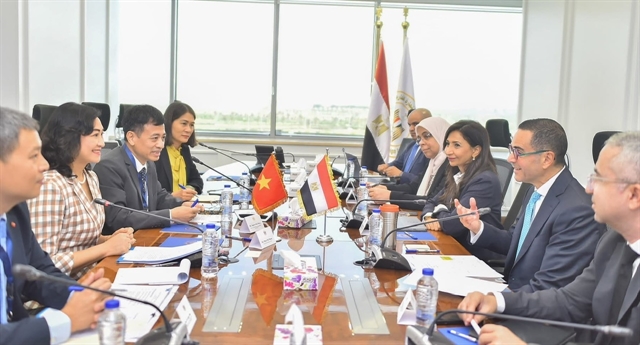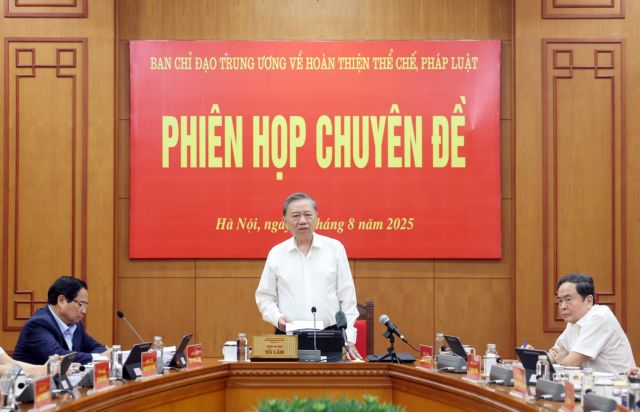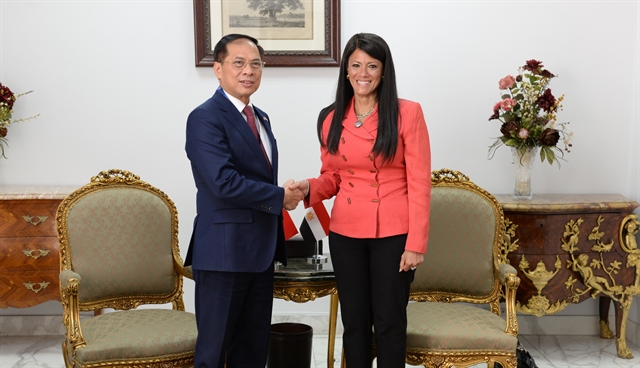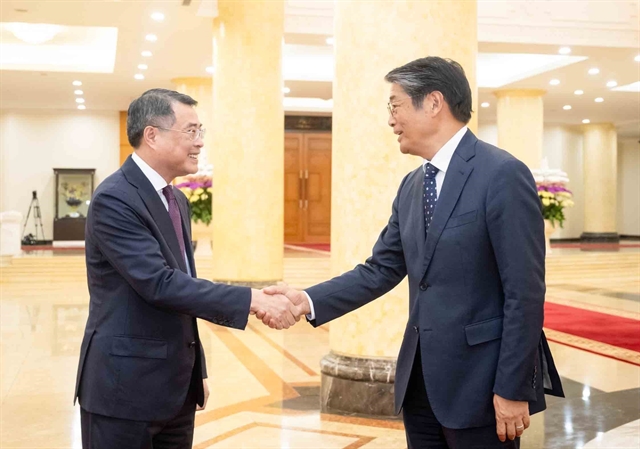 Politics & Law
Politics & Law

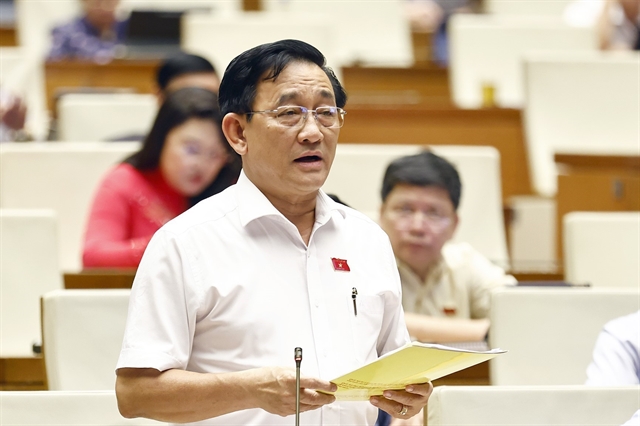 |
| Deputy Trần Quốc Tuấn from Trà Vinh Province speaks at the 9th session of the 15th National Assembly on Wednesday. VNA/VNS Photo |
HÀ NỘI — National Assembly deputies on Wednesday urged stronger penalties for businesses that fail to comply with energy labelling requirements, particularly on e-commerce platforms. They also called for public disclosure of violators to better protect consumers.
The discussion took place during the 9th session of the 15th National Assembly, focused on a draft law amending and supplementing several provisions of the Law on Economical and Efficient Use of Energy.
Deputy Đỗ Ngọc Thịnh from Khánh Hòa Province emphasised the importance of mandatory energy labelling and public disclosure of product information. However, he pointed out the current lack of mechanisms to monitor and enforce compliance, especially in the digital marketplace.
Thịnh proposed adding provisions outlining the responsibility of regulatory agencies to conduct regular inspections and penalise non-compliant businesses. He also recommended explicitly requiring the publication of a list of violating enterprises as a measure to safeguard consumer rights.
Additionally, he suggested including specific administrative penalties such as fines, licence revocation or suspension of operations for major energy-consuming facilities that fail to meet energy-saving regulations.
“This would enhance deterrence and enforcement,” he said.
Addressing the challenges that small and medium-sized enterprises (SMEs) face in adopting energy-saving technologies, Thịnh pointed out their limited financial and technical resources. He proposed that the law includes support measures such as subsidies for energy audits, free technical consulting and interest rate reductions from the Energy Efficiency Promotion Fund.
Deputy Trần Quốc Tuấn from Trà Vinh Province supported the revisions, describing them as “politically significant” in helping Việt Nam fulfill its commitment to net-zero emissions by 2050.
Tuấn highlighted the benefits of adopting certified energy-efficient construction materials, like insulated glass, which can cut electricity use and avoid public budget waste.
“Europe, the US, Japan have long implemented energy labelling for building materials. It not only conserves energy but also boosts business competitiveness,” he said.
However, Tuấn acknowledged the challenges in applying such regulations in Việt Nam, including a lack of national standards for various materials, limited accredited testing labs, high testing costs and weak post-market oversight.
To address this, he proposed that the Government issue a roadmap for mandatory energy labelling of key construction materials such as glass, insulation, and other building components that significantly affect electricity consumption.
He also called for the development of Vietnamese energy efficiency standards in line with international benchmarks and greater private-sector participation in testing and certification.
Tuấn further suggested incorporating QR codes on products for consumers to trace energy performance information and called for a stronger enforcement mechanism to penalise intentional violations.
Also speaking at the session, Deputy Lê Minh Nam from Hậu Giang Province noted that the proposed law tackles a complex issue. He stressed the need for a flexible and multidimensional approach to improving energy efficiency.
Nam urged the drafting committee to broaden the scope of the law to cover a wider range of actors and sectors. He argued that energy efficiency should be addressed holistically, from input to output, and proposed the law include stronger oversight of energy supply sources.
“In terms of input, we need to better regulate the exploration, production and investment in energy supply to ensure long-term efficiency,” Nam said. He also recommended setting pricing and water release policies for hydropower and other sources right from the supply stage to influence downstream energy use and promote conservation. — VNS

